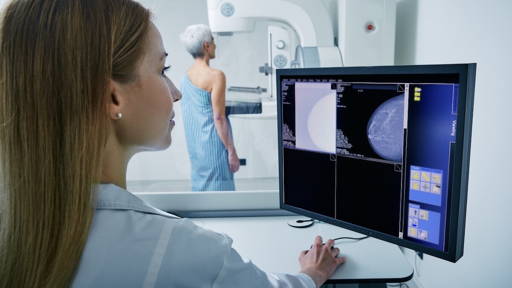A recently published study could potentially be of value in the early and simple diagnosis of Parkinson's disease. This is because researchers have discovered that the retina of people with Parkinson's disease responds differently to light stimuli than that of healthy people. This would mean that Parkinson's can be diagnosed using a retinal examination.
Parkinson's is now usually diagnosed only when a person goes to the doctor with symptoms such as trembling hands, or other motor disturbances. In practice, this means that the disease has often been present for several years, initially without visible or palpable symptoms, and the irreversible degenerative neurological process is already in full swing.
Retina can show presence of Parkinson's
It is therefore very important to diagnose Parkinson's at the earliest possible stage. “The retina is a direct extension of the central nervous system and therefore provides a non-invasive way to examine the brain. An unusual response of the retina to light stimuli could indicate a pathology affecting the brain,” explains study leader Martin Lévesque, professor in the Faculty of Medicine at Université Laval and researcher at the CERVO Brain Research Center in Quebec City.
To investigate, his research team recruited 20 people who had been diagnosed with Parkinson's less than five years ago. In these individuals, an electrode was placed on the lower eyelid for the study. This was then used to record the reaction of the retina to a series of flashes of light. The same experiment was conducted in healthy individuals who were the same age. “The results we obtained for people with Parkinson's differed from those in the control group,” said Professor Lévesque.
Same results with animal experiments
Next, a similar test was also conducted with trangene mice overexpressing a human protein associated with Parkinson's disease. “We used young mice in which no motor signs of the disease were yet detectable. Again, we obtained different responses in Parkinson's model animals. This suggests that Parkinson's functional manifestations can be detected early in the disease by retinal studies,” Lévesque summarized. The research was recently published in Neurobiology of Disease.
Much research is being done worldwide to accelerate, at an earlier stage, Parkinson's diagnosis. Last year, for example, the U.S. FDA called on researchers and scientists to develop AI models and algorithms that could contribute to this goal. In September of that year, it was announced that U.S. researchers had succeeded in developing a new procedure, using wearable sensors and machine learning, to diagnose Parkinson's at an earlier stage.









